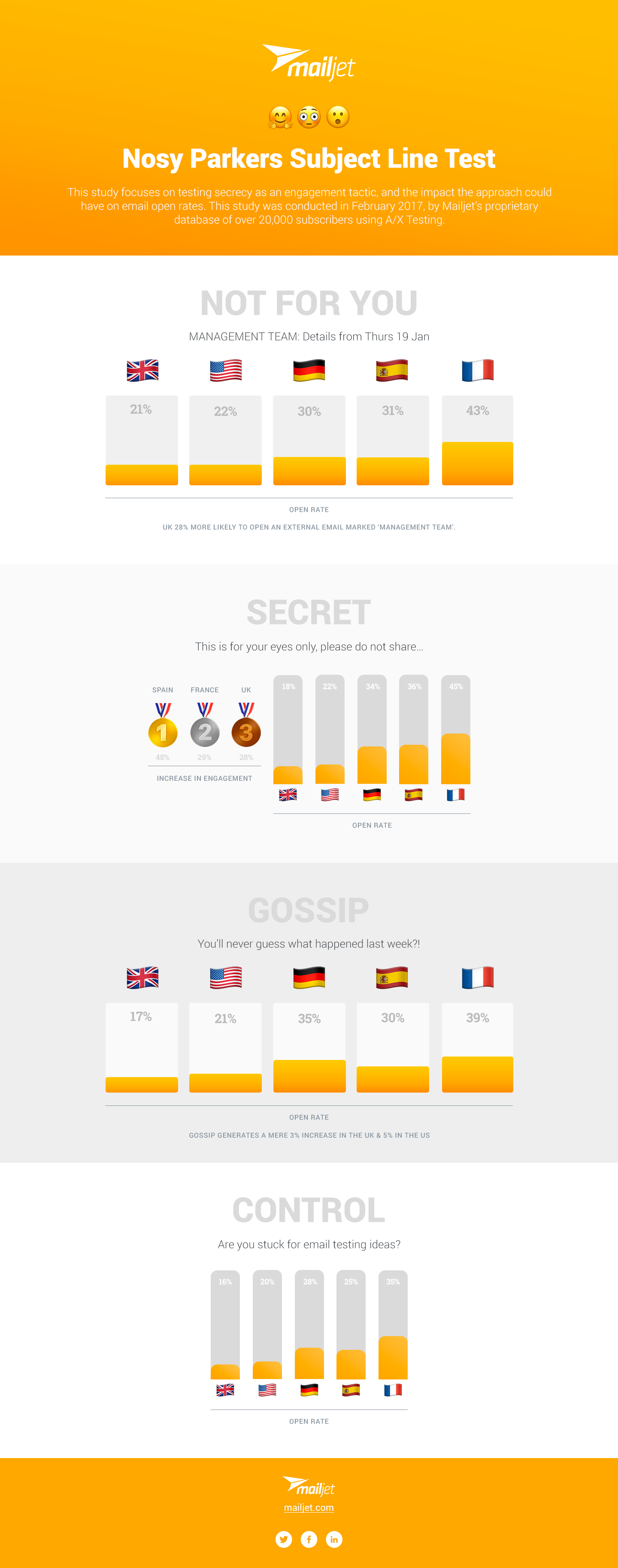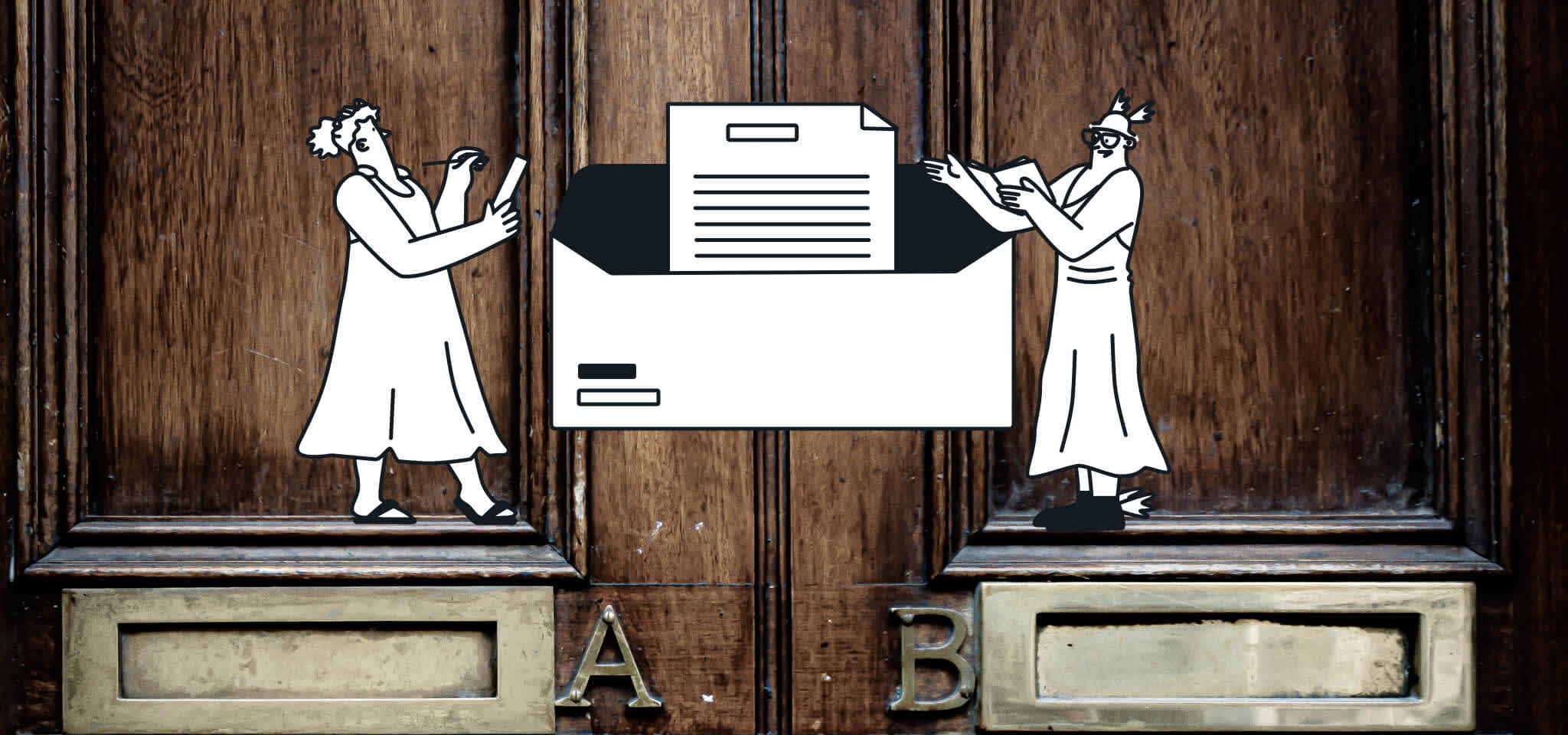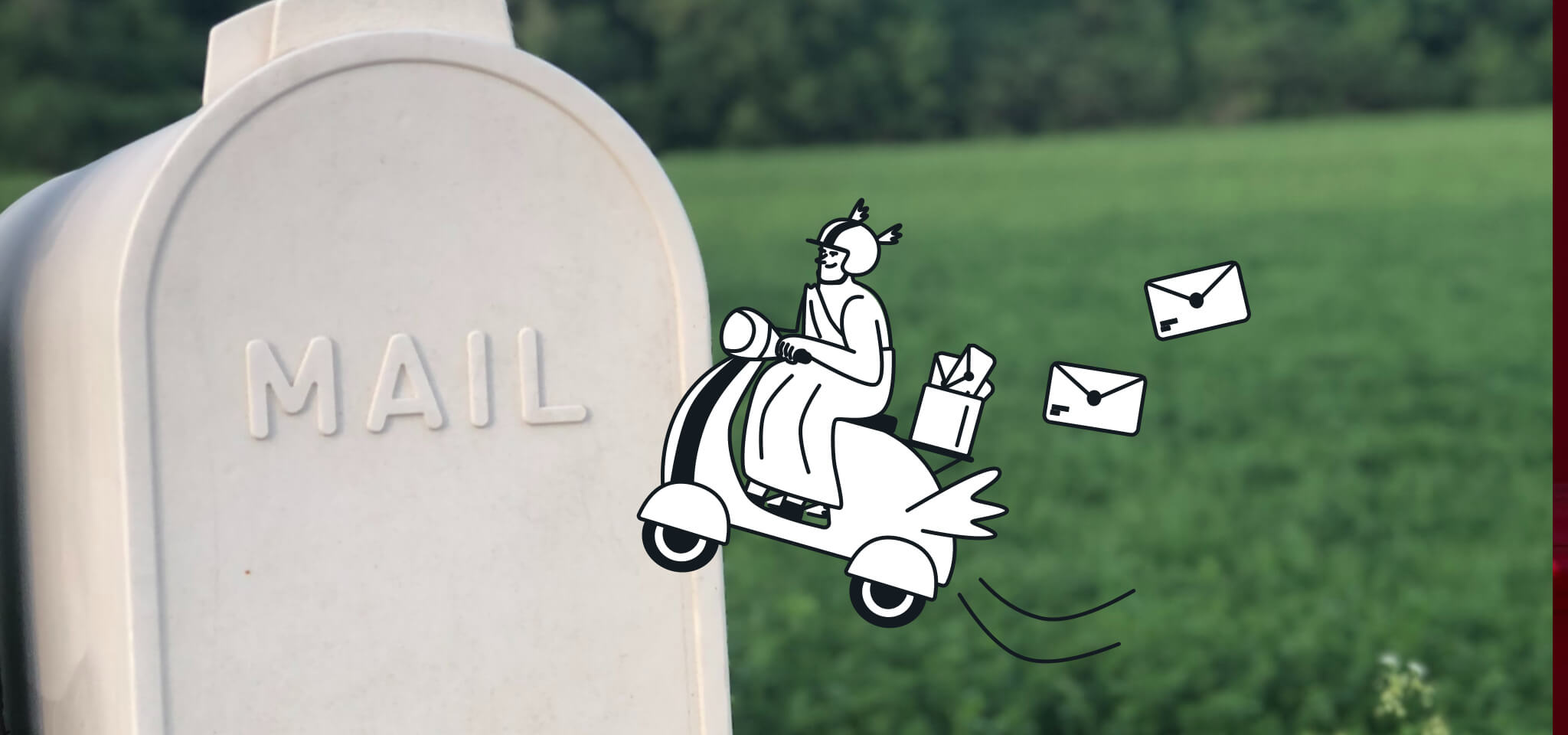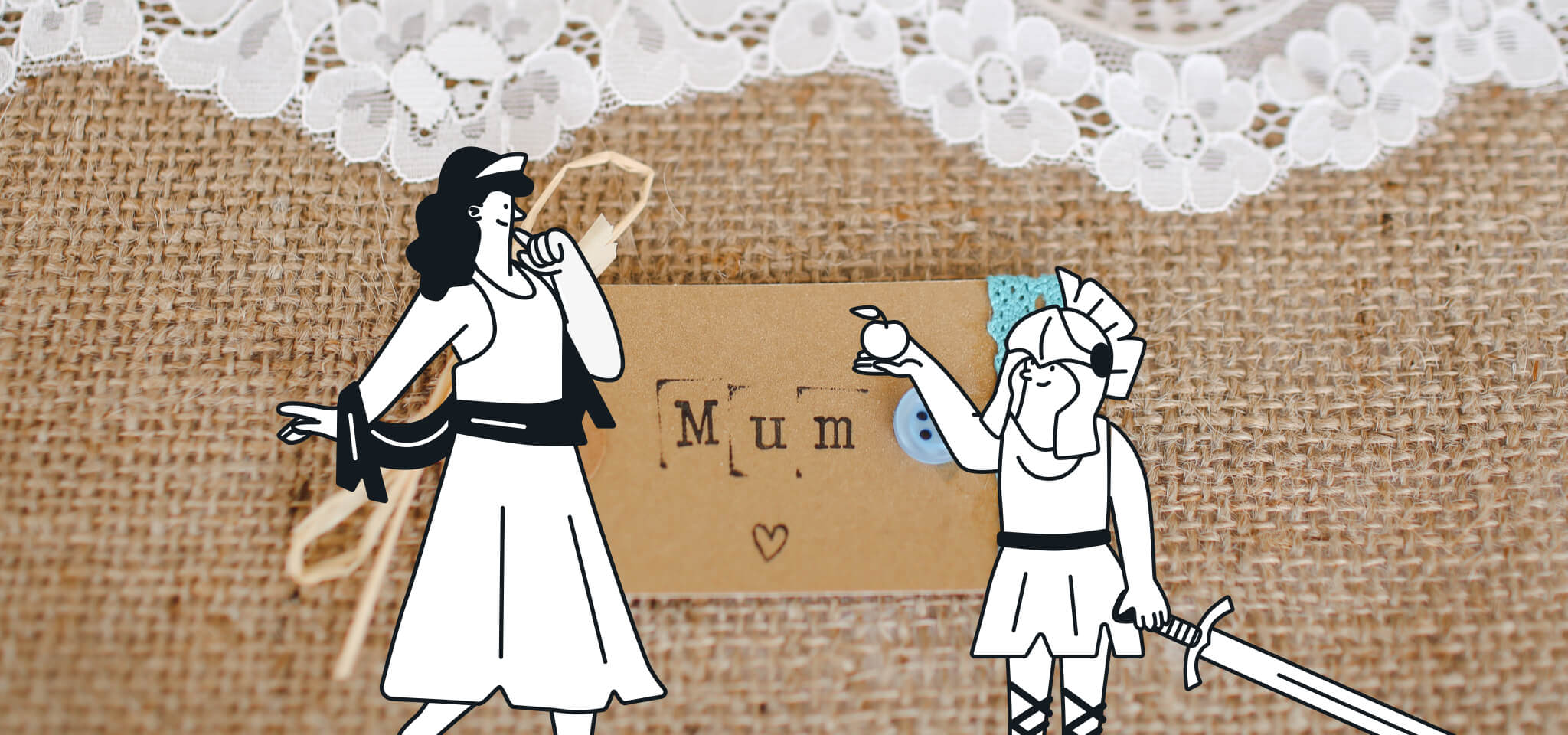Home
The Mailjet Blog
Email best practices
Infographic: Curiosity Killed The Marketer (And Their Subject Lines)
Email best practices
Infographic: Curiosity killed the marketer (and their subject lines)
Mailjet infographic shows, test centre reveals hesitance among UK consumers around confidential content compared to other European audiences.

PUBLISHED ON
Hands up if you have a nosy side?! We know that at Mailjet we’re all guilty of being (ever so slightly) curious. Which is why we love to test new subject line strategies with our newsletter audience. Last year, we played about by testing emojis, and in January, we thought we’d brighten up your inboxes by A/X testing a different approach.
Over the years there have been some fantastic use cases of ‘leaked’ information to drive engagement. Take Krispy Kreme, their launch campaign for a new Nutella doughnut involved the mass distribution of a ‘confidential internal memo’ for store managers. The fake leak had the brand trending on Twitter within an hour, as people speculated about the supposed mishap and began congratulating the brand on a successful launch. We wondered what impact this approach would have on our newsletter engagement.
Table of contents
Can a sense of curiosity within email subject lines engage audiences?
Our approach was to test three subject lines, playing on gossip, secrecy and emails not meant for the recipient. We also included a control subject line - the type you’d usually get from us. After all, we’re humans, and we thought that adding that element of emotion into our marketing messaging might entice readers to open our newsletters.
Wonder what we discovered? You’ve probably guessed it already. What we found was that, in most cases, a sense of curiosity increased engagement. Check out how each of our geographies reacted to these different approaches:
Approach 1: Gossip
You’ll never guess what happened last week?!
It seemed our savvy readers in the UK and US weren’t fans of this approach, as it had the smallest increase on engagement. However this tactic drove urgency and worked best for our curious German subscribers, who really did want to know what happened last week. We know you don’t want to feel left out, so here is what really happened that week: we published an awesome post on testing your subject lines.
Approach 2: Secret
This is for your eyes only, please do not share…
This test provoked the biggest uplift in engagement, with Spain being the most nosy country, followed by France and the UK. We may have played a bit on reverse psychology here too, as we love it when our readers share our content with their networks.
Approach 3: Not for you
MANAGEMENT TEAM: Details from Thurs 19 Jan.
Following Krispy Kreme’s lead, we played on confidentiality and exclusivity. Let’s face it, no one likes to feel left out… Especially British readers, who were the most receptive to this approach.
So now you know, adding that human element and playing on your audience's curiosity might just increase the level of engagement with your newsletters. Want to see the full results? Check out our awesome infographic below.

Have you tried adding a sense of curiosity to your subject lines? Let us know on Twitter, and tell us what tactic works best for your brand.








